Watch Matthew talk about his experiences by clicking through the Instagram scroller below.
By Amy Wolf
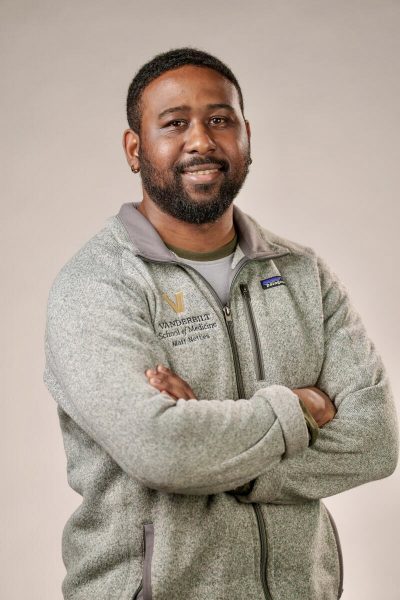
When Matthew Nettles joined the U.S. Air Force out of high school, he knew he had to straighten up and find focus in his life.
He definitely found it—along with empathy and passion to serve others in mind, body and soul. Nettles is graduating with doctor of medicine and master of divinity degrees from Vanderbilt.
“I want to practice medicine and take care of people. I am deeply concerned, both intellectually and practically, with helping people who are suffering … I thought studying medicine and theology was the best way for me to do that,” said Nettles, a Pat Tillman Foundation scholar.
Nettles is focusing his next chapter on mental health: He matched with Vanderbilt University Medical Center for a residency in psychiatry.
“Matt’s thoughtfulness and gentle spirit will contribute to him being an outstanding psychiatrist. He will make us all proud,” said Nettles’ mentor Dr. Keith Meador, Anne Geddes Stahlman Professor of Medical Ethics, professor of psychiatry and behavioral sciences, and director of the Center for Biomedical Ethics and Society at VUMC.
“Matt embodies a commitment to service and fostering cultural change through health care with wisdom and the maturity of his soul. He will make a difference in the repair of this world,” Meador added.
PIVOTAL GROWTH
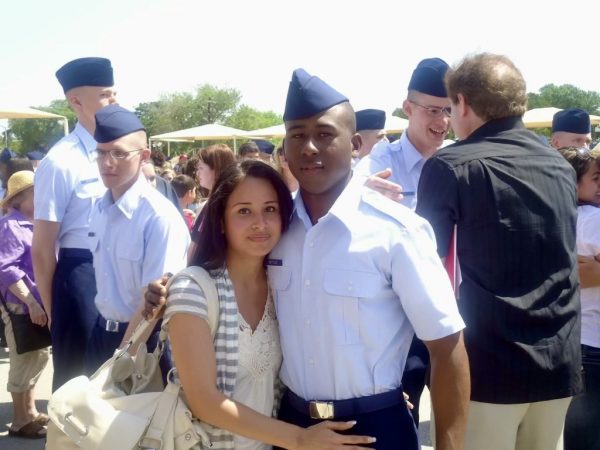
Nettles acknowledges that everyone’s military experience is different, but for him, the U.S. Air Force fostered the most pivotal growth in his life.
“I came out better in just about every way than I went in,” the southern California native said. “For the first time, I was able to see myself as a competent person who could learn quickly and grow and be given lots of leadership responsibilities at a young age. They saw something in me, and they pushed me and demanded more of me. And when they demanded that, I started to demand more of myself.”
He knew he wanted to stay connected to the military after leaving the Air Force. He worked at a state-run benefits counseling office for veterans and he volunteered Arizona’s veterans medical center. While earning his undergraduate degree in neuroscience and cognitive science at the University of Arizona Honors College, he helped lead a tutoring program for veterans in math and science courses.
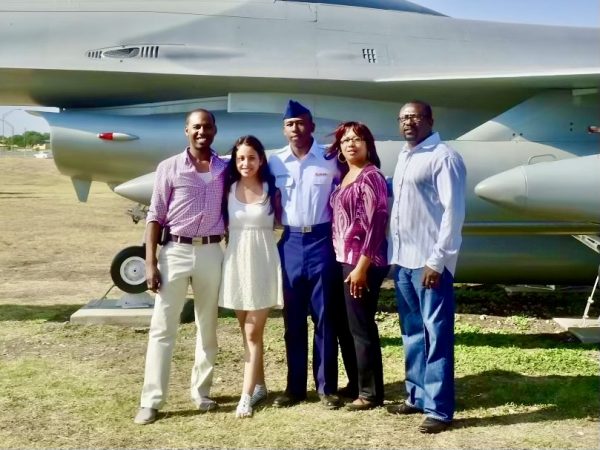
“Besides getting married and having kids, nothing has changed my life more than those four years in the military. As demanding as medical school is and as much as I’ve grown, still, the military completely changed the trajectory of my life,” he said.
FAMILY SUPPORT
His next monumental step came when Nettles met and married his wife, Tatiana.
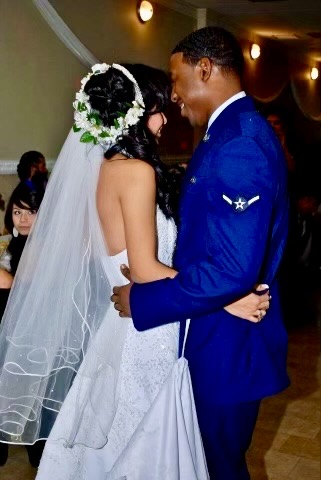
“While I was in the military, not only was I developing myself in terms of my ambitions vocationally, but also I got married,” he said. “I had to grow up because I married someone who I deeply admire and who was better than me in just about every dimension, so that demanded that I improve myself.”
The couple now have two daughters who serve as inspiration for Nettles.
“I really care about being a good doctor. I think if you’re going to practice medicine, you have a moral obligation to be as excellent as you possibly can, and I take that very seriously. Still … there’s nothing more important to me than being a good husband and a good dad,” he said.
THEOLOGY AND MEDICINE
Nettles’ father is a pastor who laid a foundation of religious education for him. Nettles said that his degree from Vanderbilt Divinity School not only opened him intellectually but has equipped him to help patients in a deeper way.
“You see it on TV—those emotional moments when the doctor says, ‘There’s nothing else we can do.’ And those limitations are real. But the truth is, there’s always something we can do. We can always sit with someone and let them know that we’re going to be with them and help them through their suffering. They’re not alone,” he said.
HONORING HISTORY
Nettles focused his master’s thesis on the life of America’s first official Black doctor. Dr. James McCune Smith was a 19th century physician, abolitionist and intellectual leader. He was born into slavery and earned a medical degree from the University of Glasgow in the 1830s. Even though no American university would admit him, Smith returned to the U.S. and was a contemporary and friend of renowned abolitionist Frederick Douglass.
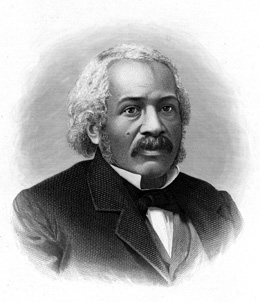
“I’m making the argument that he should not just be known as America’s first Black doctor. He should be taken seriously as an intellectual for his medical expertise, along with the work he did to fight slavery,” Nettles said.
FLIPPING IMPOSTER SYNDROME
Nettles’ consistent focus on challenging himself to work with tenacity and compassion has helped bring confidence in each leg of his journey.
“If you want to improve, you have to put in the work, and you have to put yourself in positions that you are uncomfortable because that’s the only way you can bridge the gap between where you are and where you want to be,” he said. “I’ve stopped looking at imposter syndrome as a deficit in myself and started looking at it as a nice reminder that I am, in fact, growing. That I’m stretching myself.”
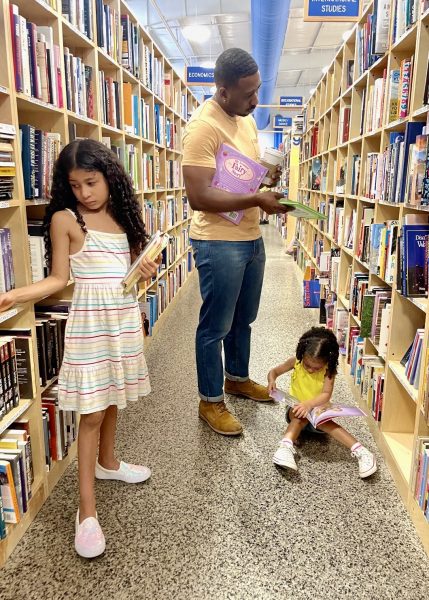
Nettles is turning his focus to finding ways to make the world better on a very personal level.
“Cynicism is so easy. It is so easy to say ‘Who cares? Nothing’s better, and everyone’s out for themselves.’ I would just challenge people, as I challenge myself, to resist the temptation of the cynical posture and to really try to make something, anything, a little bit better,” he said.
“There’s no other place I’d rather live in than right here, right now. With all of the problems as challenging as they are, I know progress is possible. And it doesn’t happen by magic. It happens by humans cooperating together, taking the challenges, the problems seriously and just trying to do a little bit better than they did before.”
THREE QUESTIONS…
WHY VANDERBILT?
I was looking for an excellent place to train, and we were looking for a place where we could feel comfortable raising our family. And I got a great scholarship. I also reached out to Dr. [Andre] Churchwell and Dr. [Kimberly] Vinson during the application period, and they gave me such thoughtful responses and encouraged me along the way. Nowhere did I feel that encouragement so much than at Vanderbilt.
WHERE HAVE YOU FOUND BELONGING AT VANDERBILT?
The medical school is such an incredible place. It’s a selective school, but it is not at all competitive in terms of trying to tear each other down. I say this all the time: The smartest and some of the hardest-working people I’ve ever been around in my entire life are here. They care so much about being excellent in medicine and in all their endeavors. And that, to me, is just an incredible environment to be in.
WHAT DOES DARE TO GROW MEAN TO YOU?
I’ve got a set of core principles that I try to remind myself of on a daily basis. And the common thread is this concept of self-development— trying to improve and be better, even if it’s just on the margins. And of course, trying to improve in some small way the world around us. But, if you want to improve, you have to put in the work, and you have to put yourself in positions that you are uncomfortable in because that’s the only way you can bridge the gap between where you are and where you want to be.
@vanderbiltu Learn more about VU2024’s Matthew Nettles on our Instagram (link in bio) #fyp #Vanderbilt
- Read more stories from our Class of 2024 profiles
- Learn more about the Vanderbilt University School of Medicine and Vanderbilt Divinity School










